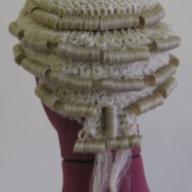what is the jurisdiction of the district court??
2007-12-12 5:54 pm
thx~~
回答 (2)
2007-12-14 2:06 am
✔ 最佳答案
Criminal Jurisdiction - The District Court deals with indictable offences transferred to it from the Magistrates' Court. A District Court Judge sits alone without a jury.
- The District Court may try all serious criminal cases except murder, manslaughter and rape. The maximum term of imprisonment it can impose is 7 years.
Civil Jurisdiction
The most common types of civil action that the District Court deals with are:
- Contract, quasi-contract & tort (including personal injuries claims) - for a contract, quasi-contract or tort claim to be handled by the District Court rather than the Court of First Instance of the High Court, it must be for an amount over $50,000 but not more than $1 million.
- Recovery of land or premises - the District Court deals with buildings or premises the annual rent or rateable value or the annual value of which does not exceed $240,000.
- Claims in equity (such as administration of estate of a deceased person, trust, mortgage, specific performance, maintenance of infant, dissolution of partnership, relief against fraud or mistake) - generally speaking, where proceedings do not relate to land, the maximum value involved shall not exceed $1 million. Where proceedings do relate to land, the maximum value involved shall not exceed $3 million; and further, for proceedings for the recovery of land or relating to the title to land, the rateable value of the land must not exceed $240,000.
- Distress
- Employees' compensation cases (there is no limit on the amount claimed)
- Sex discrimination, disability and family status discrimination cases
- Matrimonial cases including divorce, maintenance, custody and adoption of children (the court which handles these types of cases is also known as the Family Court).
參考: Veni - Vidi - Vici
2007-12-12 6:31 pm
好空泛的問題.....
咁講啦;
民事訴訟:1百萬元或以下的申索及各項婚姻訴訟
刑事訴訟:最多判監7年
咁講啦;
民事訴訟:1百萬元或以下的申索及各項婚姻訴訟
刑事訴訟:最多判監7年
收錄日期: 2021-04-26 11:49:28
原文連結 [永久失效]:
https://hk.answers.yahoo.com/question/index?qid=20071212000051KK00626

